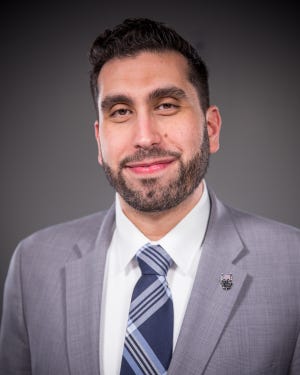Recent data from the Centers for Disease Control and Prevention confirmed a trend that many had hypothesized; COVID-19, the disease caused by the novel coronavirus, has had a disproportionate impact on minority communities. According to statistics from a New York Times article, Latino and African-American residents are three times as likely as white people to become infected with COVID-19, and twice as likely to die from it.
Among Hispanics younger than age 65, the COVID-19 death rate was 35%. For non-white, non-Hispanic people, the death rate from the disease stood at 29.5%. Both rates are substantially higher than the 13.2% rate among white people under age 65.
What government data also points out is both groups are most likely to suffer from food insecurity stemming from COVID-19, particularly children. A recent study by Northwestern University using Census data found four out of 10 Black and brown families are struggling to feed their families. They’re twice as likely to struggle than white families, a disparity that one of the study’s authors described as “appalling.”
These disturbing trends can’t continue
To help stem this problem, Islamic Relief USA (IRUSA), a nonprofit humanitarian and advocacy organization, has awarded a $12,000 grant to Mirage Academy Inc., located at 1490 Union Ave., in Memphis.
Some of the rampant transmittance in minority communities could be tied to lifestyles that are more common among these demographics, making them increasingly vulnerable to contracting the coronavirus. For one, data shows that people from both groups are more likely to work in jobs where telecommuting is not an option.
Labor Department data shows just 29% of all jobs could be worked remotely. And many of the jobs that require regular interaction with other people, largely those in the service and manufacturing sections, 43% of workers in those sectors are Black or Latino.

And, Black and brown households are more likely to live in relatively tight spaces, making it difficult to practice social distancing and have ample ventilation. The American Housing Survey, for one, found that Latino households are twice as likely to live in a crowded household (less than 500 square feet) than their white counterparts.
Since the pandemic, the food insecurity rate among Black households with kids has ballooned from 25 to 39%. Among Hispanic households, it has more than doubled from 17 to 37 percent. This is not to say that white households were immune to the socio-economic impact of the pandemic, as 22% of them have insufficient food. But here again, there’s a wide disparity.
Memphis, is not an outlier to this trend
The city in recent years has been called the “hunger capital” of the United States. In 2018, it was named the “neediest city in America.” One-third of the city’s population, which Census figures show is 64% Black and 7% Hispanic, also lack access to cars, which makes obtaining food from grocery stores located even a few miles away difficult. With the pandemic, the food insecurity rate has likely to have only become exacerbated.
While hunger can be addressed pretty readily, the actions of nonprofits are limited, as recent news footage of long lines outside food banks have shown. Government action is necessary and ultimately more expansive.
The additional Supplemental Nutrition Assistance Program (SNAP) benefits that have been provided as part of the CARES Act have been helpful. Proposals to increase the allotment deserves support, as more funding will enable more people, especially kids, from going hungry.
During times of crisis–and the pandemic certainly qualifies as one–a people and nation are judged on how they protect those who are most vulnerable. A quarter of all households exhaust their SNAP benefits within a week of receiving them, and more than half exhaust those benefits within the first two weeks. The economic consequences of COVID-19 have increased unemployment, reducing available opportunities to secure income for millions of people.
IRUSA calls on Congress to take swift action to increase SNAP benefits, and to suspend any rules that would prohibit access for families in need. More people will rely on SNAP for the time being to fulfill their nutritional needs, especially with the number of Covid-19 infections on an unfortunate upswing in many states, including in California.
It’s imperative that we do our best as a nation to ensure the food security of our most vulnerable communities.